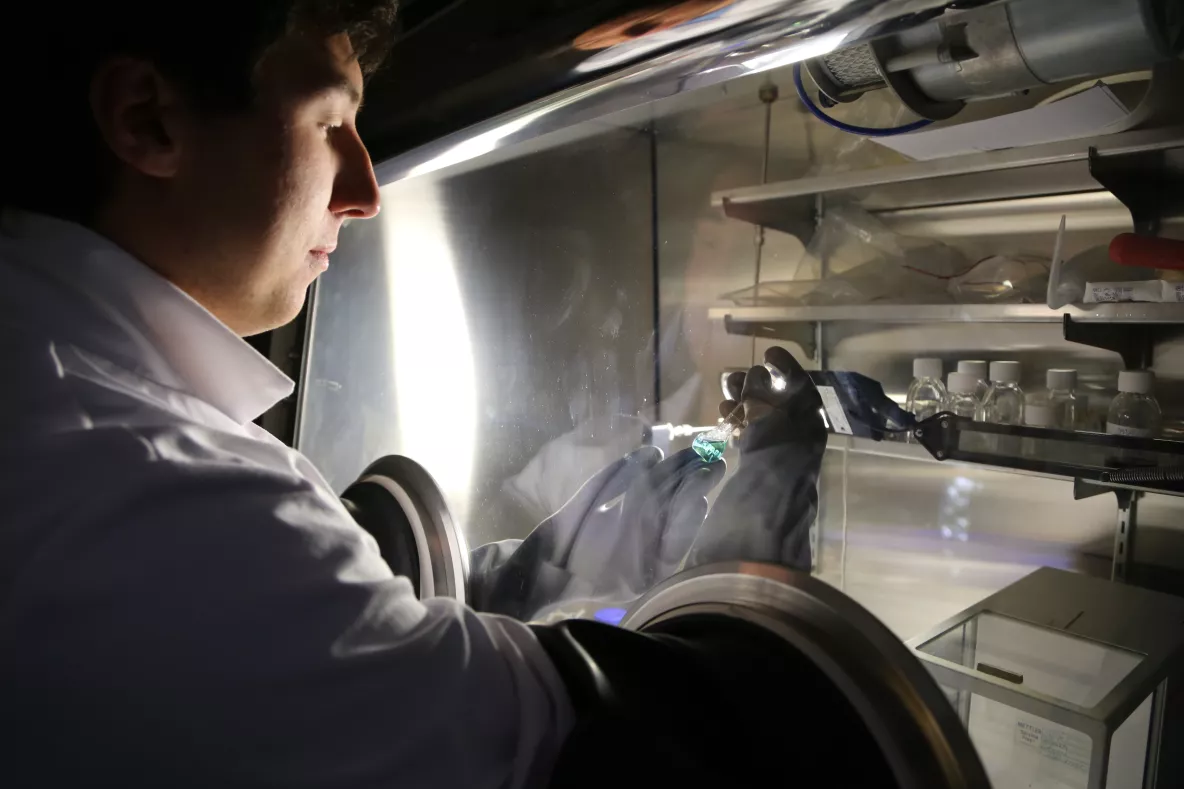

Student: Conor Londra
Course: BSc in Applied Physics
Supervisor: Dr. Robert Lynch
Project title: Development of State of Charge Monitor for Flow Batteries based on the Integration of Conductivity Measurements and Measurements of Other Parameters
'I was fortunate to be awarded an UPSTaRT scholarship from the Faculty of Science and Engineering. This allowed me to research over the Summer at the Department of Physics, becoming part of a research group under the supervision of Dr. Robert Lynch. I felt I could apply my knowledge and skills from the BSc in Applied Physics and that this research opportunity was a great way to jumpstart my career.
Dr. Lynch’s research group focuses on energy storage and semiconductor technology research and my project was part of their development of state-of-the-art technology for monitoring vanadium flow batteries. Flow batteries differ from conventional batteries by storing energy in electrolytes. This makes it possible to readily adjust the system's energy capacity by expanding the electrolyte reservoir volume and to quickly ‘refuel’ such batteries with ‘fresh electrolytes’ in a manner similar to fuelling a car. Additionally, because energy is held in electrolytes, it is much simpler to precisely monitor the battery's state of charge (SoC). We have been integrating several sensors into a prototype SoC monitor to monitor SoC. Primarily, I have been working on the calibration of the system and instrumentation of the system using op-amps, multiplexors, resistors, and an Arduino, which I have programmed using C. I worked as part of a team that included a post-doctoral researcher, Dr. Maria Al Hajji, and an engineering summer student, Jack Kirwan allowing me to also be part of the development of the mechanical protong of the system.
This opportunity has allowed me to see how new technologies are developed. I hope to continue as part of this research team during the academic year when our prototype has progressed further and has been tested on industrial-scale systems.'
Postal Address: Science & Engineering Faculty Office, Lonsdale Building, 1st Floor, University of Limerick, Limerick, Ireland
Email: scieng@ul.ie
Phone: +353 (0)61 202109 or +353 (0)61 202642